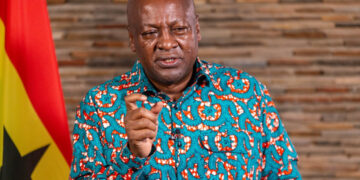Shatta Wale has expressed strong criticism of the Ghanaian government and the creative arts industry for failing to recognize the importance of content creators. He asserts that content creation is a legitimate profession deserving of investment and respect.
The Ghanaian dancehall artist targeted both the government and stakeholders in the creative sector, accusing them of misunderstanding the contributions of content creators. In a post on X (formerly Twitter) on May 3, he voiced his frustration over the lack of support from the institutions meant to uplift these creators.
“I don’t think the creative arts industry in Ghana and the government truly understands who content creators are,” he stated.
Shatta Wale emphasized that content creation is not merely a side hustle but a full-time career that serves as a vital income source for many. “These individuals have chosen this path, sacrificing their time, investing in equipment, building teams, and creating platforms from scratch. It’s not just a hustle; it’s a serious business.”
He highlighted the interconnectedness of content creation and the entertainment industry, arguing that proper investment could enhance Ghana’s entertainment landscape.
ICYMT: ‘Declare assets or face dismissal’—Mahama enforces strict code of conduct for appointees
“We need to understand that entertainment and content creation go hand in hand, and with the right support, these platforms can grow and contribute massively to the industry.”
The self-proclaimed “Dancehall King” also addressed the misconception that YouTubers and digital creators earn money effortlessly. “Please don’t say they’re ‘making money from YouTube’ as if it’s some overnight success. The education and discipline required to build on YouTube is far deeper than what you’ve been told. It’s not easy, my guy.”
In conclusion, Shatta Wale plans to use his platform to elevate content creators by featuring them in interviews and increasing their visibility, aiming to change public perception and advocate for the recognition they deserve.
SOURCE: PULSE GHANA




























